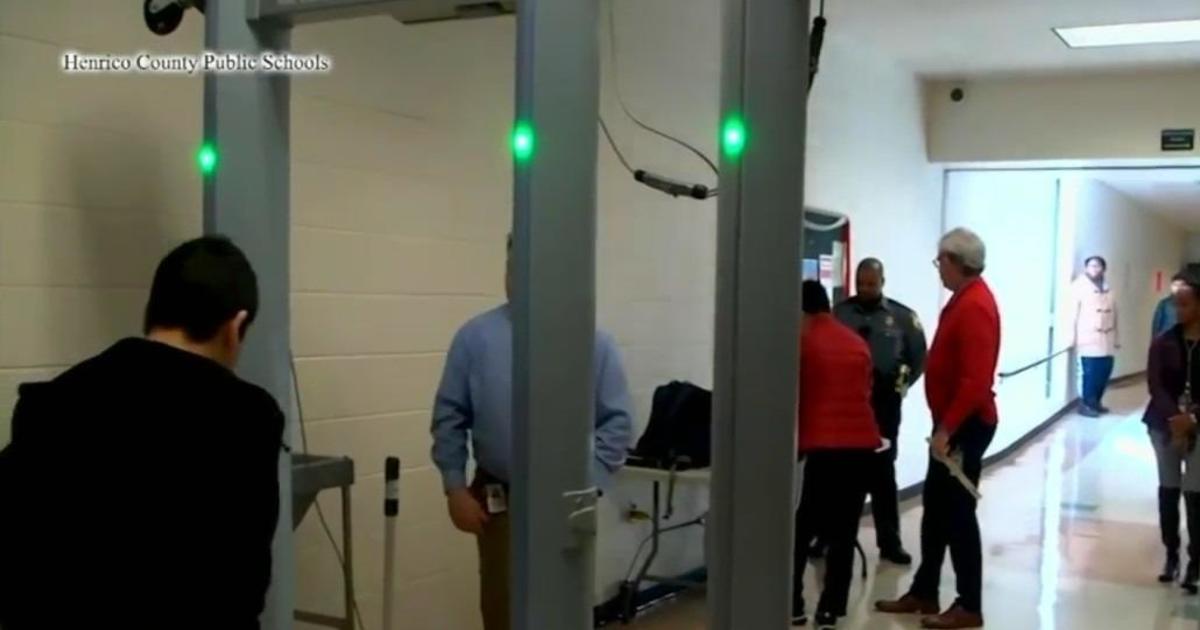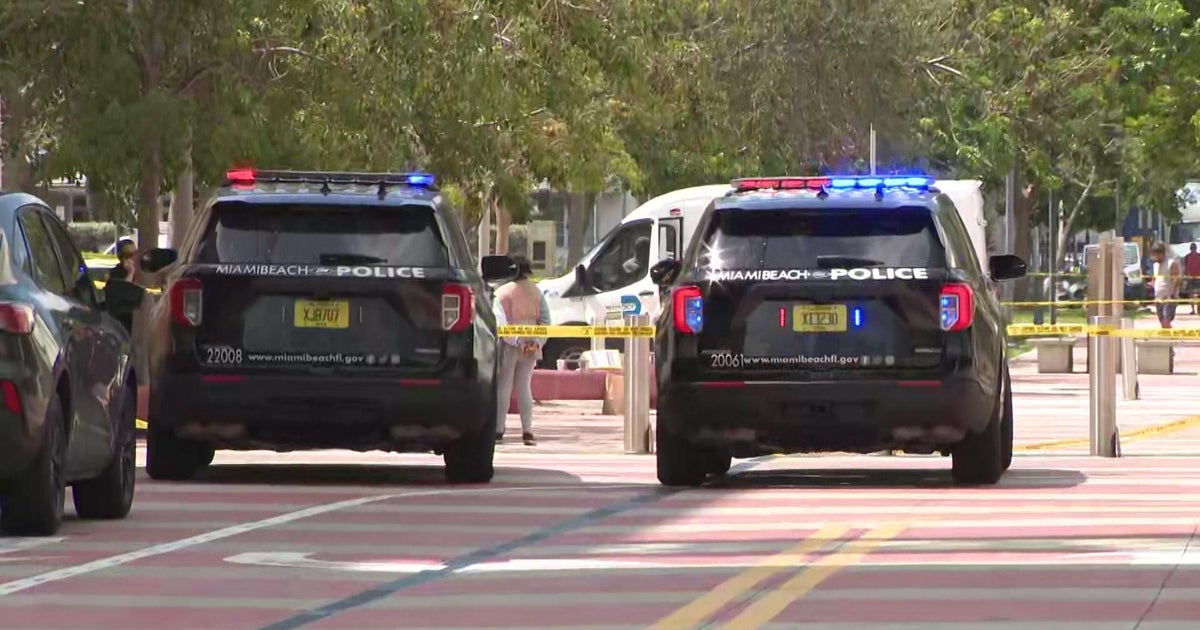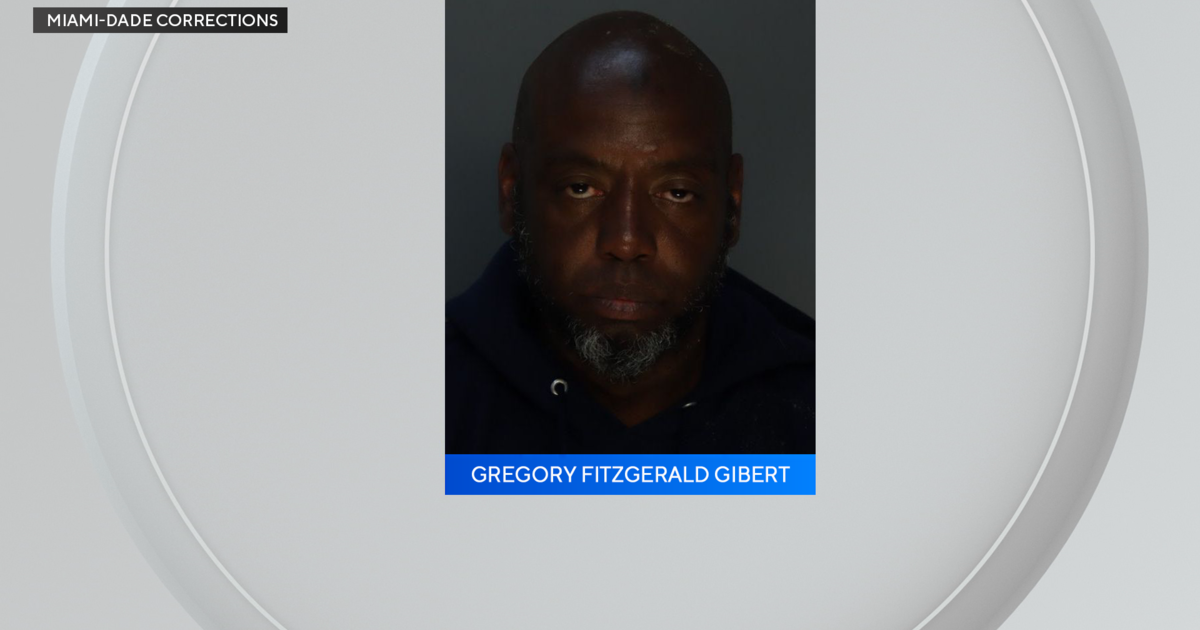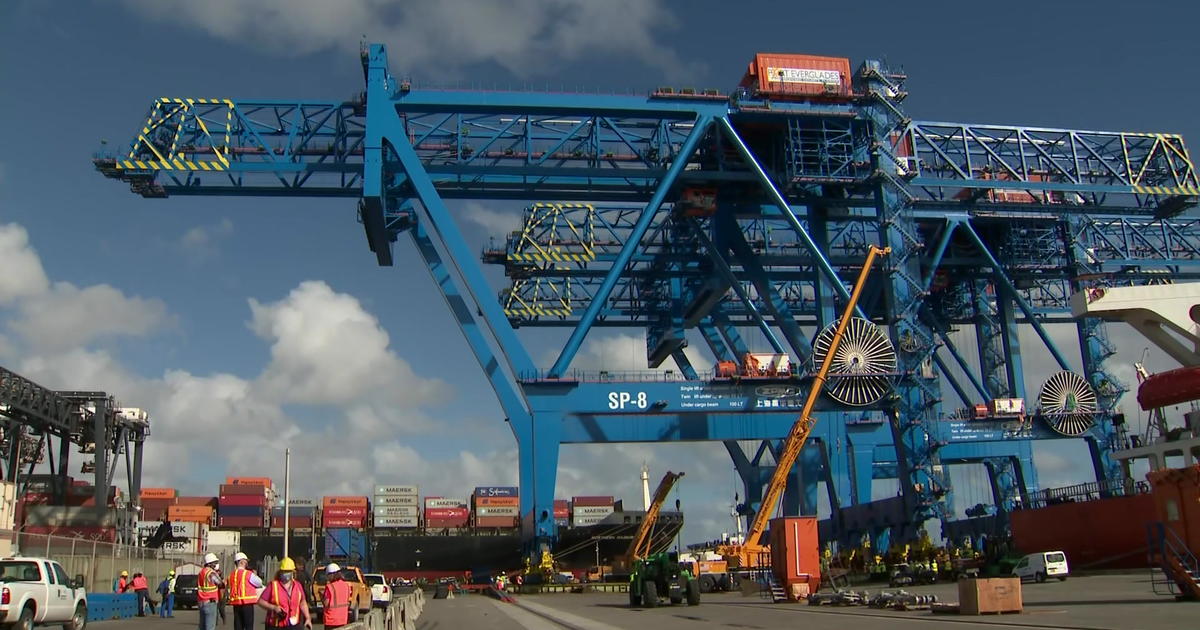Security Never The Same After 9/11
MIAMI (CBS4) - The attack on America on September 11th, 2001 broke our hearts, provoked our outrage, and evoked a fear we had never known. The changes in U.S. domestic security were immediate, dramatic and promise to be ever-lasting.
In the weeks following the terrorist attack, Florida National Guard members, toting M-16 rifles, were dispatched to blanket our airports. Bomb sniffing dogs were everywhere.
We didn't know when, where, or how the evil-doers might strike next.
At Miami International and Fort Lauderdale/Hollywood International airports, security guards and police made arriving vehicles - every car, every truck - open its doors and hatchbacks and trunks to be searched. Large mirrors on the ends of poles were used to look at undercarriages for bombs that might be hidden there.
Soldiers appeared at the Turkey Point nuclear power plant in South Miami-Dade for fear of atomic terror.
"Anything we can do to help out homeland security, we're here to provide," Guard Lt. Greg Wilson told reporters on November 9th, 2001, at the main gate to the nuke plant.
"Homeland Security." It was a new term, born of a frightening time.
The National Guard is gone from the airports now, but the M-16s are not. They are wielded by omnipresent police.
To this day, police vessels stand guard around cruise ships docked at the Port of Miami and Port Everglades. A boat bomb, like the one that gutted the USS Cole in Yemen, a land far away, is now a worry for the homeland.
Prior to 9/11, other than firearms or an overt bomb, there was almost nothing you couldn't take on an airplane; pocket knives, cutlery, box cutters - all were allowed through security.
And so it was that Mohammed Atta and his Jihadist pals were able to carry their murder weapons on board.
But no more.
A hodgepodge of privately-contracted security screeners, largely low-paid and poorly trained, have been replaced by an $8 billion dollar a year Transportation Security Administration. Searches are meticulous and no one is exempt.
"It's a bit too much. You have to go through this clearance and then that clearance," said Holly Cooper, being frisked as she sat in her wheelchair at MIA Friday. "But it's better to be safe than sorry in the long run."
The T.S.A. has come under criticism from government inspectors who have been able to get prohibited items past screeners in random testing.
Still, security experts say the system we have now is vastly superior to the one it replaced.
"They have some problems, but at least we have professional law enforcement people running it at the top," said international security consultant Wayne Black, who is based in Miami.
Security has been reactive in many cases. When Richard Reid, the so-called "shoe bomber," attempted to detonate explosives hidden in his shoe, it became mandatory for all passengers to remove their shoes when going through security.
And when Umar Faroukk Adbulmutallab, the so-called "underwear bomber" secreted a device in his briefs, the T.S.A. rapidly expanded the use of full body scanners that allow agents to look through passengers' clothing - and beneath their underwear - for bombs.
The Full Monty security treatment has not played well with some.
"I have an issue with that, a big issue with that," said Jorge Martinez, waiting to enter the security line at MIA. "I'm married, and I don't want people looking at my wife's private parts."
Another passenger, William Rosa, said if the body scanners make flying safer, it's okay with him.
"It doesn't bother me. I was born naked, so what the heck," he said, laughing.
Experts fear our security Achilles heal could be in other countries where airport security is porous.
"You can get on a Delta flight in Lagos, Nigeria, and end up in Atlanta without having to go through a metal detector," said Black, the security consultant.
Post-9/11 security has prompted moral and constitutional debates.
The George W. Bush administration acknowledged having used torture methods, including waterboarding - near drowning - on terror suspects.
"Those techniques saved lives," the former president said in a 2010 interview. "My job was to protect America, and I did."
The post-9/11 PATRIOT Act, which permits unwarranted eavesdropping on U.S. citizens under some circumstances, has come under fire as being a violation of privacy rights and constitutional protection against unlawful searches.
"We lost our way when, instead of addressing the challenge of terrorism consistent with our values, our government chose the path of torture and targeted killing, of Guantánamo and military commissions, of warrant-less government spying and the entrenchment of a national surveillance state, all of which now define the post-9/11-era," said Howard Simon, director of the American Civil Liberties Union of Florida. "That is not who we are, or who we want to be."
In 2004, customs agents began fingerprinting and photographing arriving foreign nationals at airports, including some who had already been granted permanent U.S. residency status.
"I know security is very important," said Lloyd Thomas, a U.S. resident in a 2004 interview after undergoing the procedure upon arrival at MIA. "But I think we are going to the extreme."
Security restrictions have also drawn the ire of tourism officials in Florida.
Visitors from many nations, including Brazil, one of South Florida's biggest tourism customers, have to obtain visas before coming to the U.S.
"It is an incredible hassle to get in," said William Talbert, president of the Greater Miami Visitors and Convention bureau. "Right now, the wait for a Brazilian visitor to get a visa is more than three months. It is costing us jobs in South Florida."
The tourism industry is waging a lobbying campaign to try to persuade the government to grant visa waivers to friendly nations that supply business to the state's largest industry.
The government has eased some security restrictions amid public backlash. The list of prohibited airline carry-on items has been pared, for instance.
Passengers may now take small bottles of shampoo, mouthwash and other toiletry items on board in a plastic bag.
Cigarette lighters are no longer banned, and even a metal corkscrew can go in your carry-on, provided it has no cutting blade attached.



